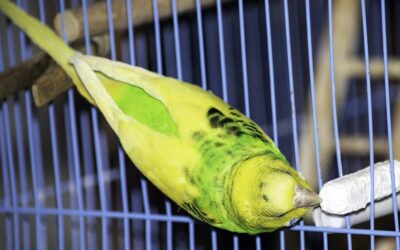Can dogs have watermelon?
Dogs are more than just pets—they’re family. As a family, we want to ensure they enjoy the same delicious treats we do, especially during the hot summer months. But what about watermelon? Can dogs have watermelon? This blog post dives into everything you need to know about feeding this refreshing fruit to your furry friend. We’ll explore the benefits, the risks, and the best ways to safely incorporate watermelon into your dog’s diet. Whether you’re a dog lover, a nutrition enthusiast, or simply a concerned pet owner, read on to learn how to make watermelon a safe and enjoyable treat for your pup!
All the Benefits of Watermelon for Your Dog
Watermelon is not only a delicious treat for humans but also provides a myriad of benefits for dogs. Here’s why you should consider adding this juicy fruit to your dog’s diet:
Hydration
With its high water content (about 92%), watermelon helps keep your dog hydrated, especially during hot weather. This is crucial for maintaining optimal bodily functions and preventing dehydration.
Rich in Nutrients
Watermelon is packed with essential vitamins and minerals that can contribute positively to your dog’s health. Vitamins A, B6, and C found in watermelon are important for a strong immune system, healthy skin, and a shiny coat. Additionally, these vitamins play a role in maintaining good vision and supporting metabolic functions.
Low in Calories
Watermelon is low in calories, making it an excellent treat for dogs who need to manage their weight. Unlike many commercial dog treats that are high in fat and sugar, watermelon can satisfy your dog’s sweet tooth without leading to weight gain.
Antioxidant Properties
The antioxidants present in watermelon, such as lycopene and beta-carotene, help fight off free radicals in your dog’s body. These antioxidants can protect cells from damage, reduce inflammation, and potentially reduce the risk of chronic diseases.
Promotes Healthy Digestion
Watermelon contains a small amount of dietary fiber, which can aid in healthy digestion. Fiber helps to regulate the digestive system, ensuring your dog has regular bowel movements and reducing the likelihood of constipation.
Natural Energy Booster
Natural sugars in watermelon can provide a quick energy boost, which is great for active or working dogs. The fruit can serve as a quick pick-me-up during training sessions or after a long run.
Tooth-Friendly Treat
Unlike many treats that might cause dental issues, watermelon is gentle on your dog’s teeth. It can actually help in cleaning the teeth by promoting the chewing motion which aids in reducing plaque build-up.
By incorporating watermelon into your dog’s diet in moderation, you can take advantage of these numerous health benefits while offering a refreshing and enjoyable treat. Just remember to prepare and serve it correctly to maximize its positive effects.

Is Watermelon Safe for Dogs?
While watermelon offers numerous benefits, it’s essential to know how to serve it safely to your dog. Let’s explore some of the key considerations to keep in mind.
Seedless Watermelon
Can dogs eat watermelon seeds?
Always opt for seedless watermelon or remove the seeds yourself. Seeds can cause an intestinal blockage, leading to severe health problems. Black seeds are particularly problematic, so make sure to remove all seeds before offering watermelon to your dog.
Avoid the Rind
The rind of the watermelon is tough and difficult for dogs to digest, posing a choking hazard and potential gastrointestinal upset. Stick to the flesh of the watermelon, and avoid giving your dog the rind.
Moderation is Key When Your Feed Your Dog Watermelon
While watermelon is generally safe for dogs, too much of it can cause an upset stomach or diarrhea. Offer watermelon in moderation, serving it as a treat rather than a staple in their diet. Know when how much watermelon is too much.

How to Serve Watermelon to Your Dog
Serving watermelon to your dog can be a delightful experience for both you and your pet. Follow these guidelines to ensure you’re offering it safely and in the most enjoyable way possible:
Preparing Fresh Watermelon
-
Choose a Ripe Watermelon: Select a ripe, seedless watermelon that is free of any bruises or soft spots. Ensure it is thoroughly washed to remove any pesticides or dirt.
-
Remove Seeds and Rind: Carefully cut the watermelon and remove all seeds and rind. The seeds can pose a choking hazard or cause intestinal blockages, while the rind is difficult for dogs to digest and may lead to gastrointestinal issues.
-
Cut into Bite-Sized Pieces: Slice the watermelon into small, manageable chunks that are appropriate for your dog’s size. Smaller pieces are easier to eat and help prevent any choking risks.
Creative Serving Ideas
-
Watermelon Cubes: Serve fresh watermelon chunks as simple, bite-sized treats. These are perfect for a quick, refreshing snack.
-
Frozen Watermelon Treats: Can dogs eat frozen watermelon? Yes! Freeze small cubes of watermelon for a cooling treat on hot days. This not only helps to cool your dog down but also provides a fun and engaging way for them to enjoy their treat.
-
Watermelon Ice Cream: Blend watermelon with plain, lactose-free yogurt and freeze the mixture in molds. This creates a creamy, hydrating, and refreshing treat that’s perfect for summer.
-
Watermelon Popsicles: Puree watermelon and pour it into popsicle molds, then freeze. These popsicles are a delightful and hydrating treat that your dog will love.
-
Watermelon Smoothie: Feed watermelon with other dog-safe fruits and a bit of water to create a nutrient-rich smoothie. Serve it in a bowl or use it to top your dog’s regular food for added flavor and hydration.
-
Watermelon Salad: Mix watermelon chunks with other safe fruits like blueberries, apples, and a small amount of mint for a refreshing fruit salad that your dog will enjoy.
Potential Risks and Precautions
While watermelon is generally safe for dogs, there are some risks and precautions to be aware of.
Choking Hazard
Always remove seeds and rind to prevent choking hazards. Even white seeds and pieces of rind can pose a risk, especially for smaller dogs.
Gastrointestinal Upset
Too much watermelon can cause gastrointestinal upset, leading to diarrhea or an upset stomach. Introduce watermelon gradually and in small amounts to see how your dog reacts.
Allergic Reactions
While rare, some dogs may be allergic to watermelon. Monitor your dog for any signs of an allergic reaction, such as itching, swelling, or difficulty breathing, and consult your vet immediately if you notice any symptoms.

Watermelon vs. Other Fresh Fruit for Dogs
How does watermelon compare to other fruits that are safe for dogs? Let’s take a quick look at some popular options.
Apples
Apples are another dog-friendly fruit, but they should be served without seeds and core. They’re high in fiber and vitamin C but don’t offer the hydrating benefits of watermelon.
Blueberries
Blueberries are small and easy to serve, packed with antioxidants and vitamins. They make a great low-calorie treat but can be less hydrating compared to watermelon.
Bananas
Bananas are rich in potassium and make a sweet snack for dogs. However, they have higher sugar content, so they should be given in moderation.

FAQ: Watermelon for Dogs
Here are some frequently asked questions about watermelon before giving it to our fur babies:
Can All Dogs Eat Watermelon?
Most dogs can enjoy watermelon safely as long as it is served properly. However, if your dog has known allergies or specific health concerns, you should consult your veterinarian before introducing any new food into their diet.
How Many Watermelons Can I Give My Dog?
Watermelon should be given in moderation and not as a daily staple. It can be offered as an occasional treat or snack, especially during hot weather. Too much watermelon may lead to digestive issues such as diarrhea.
Can My Dog Eat Watermelon Seeds?
Yes, watermelon seeds can be harmful to dogs. They pose a choking hazard and can potentially cause intestinal blockages. Always ensure to remove all seeds before offering watermelon to your dog.
Can Dogs Have Watermelon Rind?
No, dogs should not eat watermelon rind. The rind is tough and difficult for dogs to digest and can lead to gastrointestinal issues. Always remove the rind before serving watermelon to your pet.
What Should I Do if My Dog Eats Too Much Watermelon?
If your dog consumes too much watermelon, they may experience digestive upset such as diarrhea or stomach ache. In most cases, limiting their intake and providing plenty of water will help. If symptoms persist or worsen, contact your veterinarian for advice.
Is Watermelon Good For Dogs or Safe for Puppies?
Yes, watermelon can be safe for puppies when given in small amounts and prepared correctly. As with adult dogs, ensure the seeds and rind are removed, and introduce the fruit gradually to avoid digestive upset.

Can Diabetic Dogs Eat Watermelon?
Diabetic dogs should generally avoid watermelon due to its natural sugar content. Always consult your veterinarian before giving watermelon or any sweet treats to a diabetic dog.
Can Watermelon Cause Allergies in Dogs?
While uncommon, some dogs may be allergic to watermelon. If it’s their first time trying watermelon, start with a very small amount and watch for any signs of an allergic reaction, such as itching, swelling, or difficulty breathing. If any of these symptoms occur, contact your veterinarian immediately.
What Are the Signs That My Dog Might Be Allergic to Watermelon?
Signs of an allergic reaction to watermelon may include itching, hives, swelling (particularly around the face and paws), difficulty breathing, and gastrointestinal distress such as vomiting or diarrhea. If you notice any of these symptoms, stop feeding watermelon and contact your veterinarian.
Conclusion
Watermelon can be a delightful and nutritious treat for your dog when served safely and in moderation. It’s hydrating, rich in essential vitamins, and can aid in healthy digestion. However, always remove seeds and rind, and start with small amounts to ensure your dog enjoys this refreshing fruit without any adverse reactions.
Are you ready to add watermelon to your dog’s diet? Give it a try and watch your furry friend enjoy this summertime favorite!

Kate’s K9 Pet Care Service
For more tips on pet nutrition and to get personalized advice, consider booking a consultation with one of our pet service experts at Kate’s K9 Pet Care Services. Happy feeding and playing!
By following these guidelines, you’ll ensure your dog can safely enjoy the benefits of watermelon while avoiding any potential risks. Remember, moderation and proper preparation are key to making watermelon a healthy and enjoyable treat for your beloved pet.







